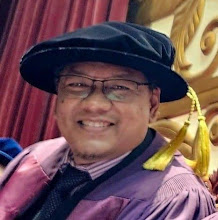The seawater temperature, DO, pH, salinity, conductivity, total dissolved solids, total alkalinity, total carbon dioxide, turbidity, total suspended solids, NH3-N, NO2-N, NO3-N, PO4-P, Cd, Cr, Cu, Fe and Pb concentrations in a fish hatchery were determined. The study was conducted at the seawater intake point of the Borneo Marine Research Institute (BMRI), Universiti Malaysia Sabah, Malaysia from May to December 2006. Seawater samples were collected during ebb and flood tides at two different depths namely, 0.1 m from surface and bottom. The objectives of the study were to determine the seawater quality during ebb tide and flood tide and to compare the values obtained with the seawater quality standards for marine fish culture activity. An independent t-test showed that only the seawater DO, total alkalinity, turbidity, NO3-N and Cr concentrations were affected by the tides (p<0.05). The concentrations of total alkalinity, turbidity and Cr were higher during ebb tide compared to the flood tide but lower DO and NO3-N were recorded. However, all the parameters measured (except DO) were within the range of seawater quality guidelines for marine fish culture activity. The maximum DO detected during flood tide was 12.2 mg/L, which is two times higher than normal condition. Solubility of DO in the water at 30oC and 30 ppt was 6.39 mg/L only. This high DO may be due to the algal bloom occurring during the time of sampling in the area of the seawater intake point. TSS was also found to be higher than the standards for marine fish culture activity and there was no significant different (p<0.05) during ebb tide and flood tide. The standard TSS for marine fish activity is not more than 10 mg/L and the study recorded maximum concentrations during ebb tide and flood tide of 27.1 mg/L and 26.8 mg/L, respectively. This study suggests that based on the guidelines for marine fish culture, TSS is the main parameter contributing to poor water quality at the seawater intake point of BMRI fish hatchery. The study forms the basis for water management strategies required for aquaculture activities.
This paper was presented in the 7th International Scientific Symposium IOC/WESTPAC "Natural Hazards and Changing Marine Environment In The Western Pacific". May 2008
Showing posts with label Tidal effects. Show all posts
Showing posts with label Tidal effects. Show all posts
Friday, February 13, 2009
Subscribe to:
Comments (Atom)

